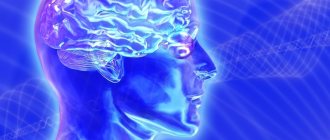Human
Man is the main participant in socio-historical relations, he creates culture, and through his efforts moves the global historical and cultural process.
By its nature, it is an integral biosocial (biopsychosocial) system, a unique creature capable of conceptual thinking, producing tools, possessing articulate speech and moral qualities. This is a collective general concept to designate all representatives of the human race.
Correlation of concepts: man, individual, individuality, personality
Nature and essence of man
4. Correlation of concepts: man, individual, individuality, personality
The relationship between the concepts of “person”, “individual”, “personality”, “individuality”. For a long time in Marxist literature, these concepts were hardly distinguished and were used as something interchangeable. Gradually this approach was overcome. These concepts are of the same order, but not identical. At the same time, the distinction between these concepts should not lead to the other extreme - their sharp demarcation and opposition.
The most general, generic concept is man. Man is a subject of socio-historical activity and culture, or, more precisely, a subject of given social relations and thereby of the global historical and cultural process. Being the highest stage of development of living organisms on Earth, it by its nature represents a unity of social and natural qualities, reflected in the definition of man as an integral, complex biosocial (biopsychosocial) system.
An individual is a single representative of the human race, the particular from the general, an individual person - regardless of his real anthropological and social characteristics. A born child is an individual, but he is not yet a human individual. An individual becomes an individual as he ceases to be just a “unit” of the human race and acquires relative independence of his existence in society, becomes a personality.
Personality is a human individual taken in the aspect of his social qualities (views, abilities, needs, interests, moral beliefs, etc.). It represents a dynamic, relatively stable integral system of intellectual, socio-cultural and moral-volitional qualities of a person, expressed in the individual characteristics of his consciousness and activity. ".. . The essence of a “special personality,” wrote K. Marx, “is not her beard, not her blood, not her abstract physical nature, but her social quality... " The social qualities of a person are manifested in her actions, actions, and in her attitude towards other people. By these externally manifested actions, as well as through questionnaires, tests and introspection, one can to a certain extent judge the inner world of a person, his spiritual and moral qualities. The internal content of a personality is not the result of the mechanical introduction of various external influences into its consciousness, but the result of its internal work, in the process of which the external, having passed through the subjectivity of the individual, is processed, mastered and applied by it in practical activity. The resulting system of social qualities brought up and independently developed by the individual manifests itself in a subjective form (ideas, values, interests, orientation, etc.), reflecting the interaction of the individual with the surrounding objective world. The concept of personality characterizes a person as an active subject of social relations. At the same time, each person is not only a subject, but also an object of activity, a set of functions (roles) that he performs due to the established division of labor, belonging to a particular class or social group with their ideology and psychology. The nature of a person’s worldview, formed by the social environment, upbringing and self-education, is one of its most important qualities, its “core.” A person’s worldview largely determines the direction and characteristics of all socially significant decisions and actions.
If in its essence the personality is social, then in the way of its existence it is individual. Individuality is a unique, original way of being for a specific person as a subject of independent activity, an individual form of human social life. It expresses the individual’s own world, his special life path, which in its content is determined by social conditions, and in origin, structure and form is individual in nature. The essence of individuality is revealed in the originality of a particular individual, his ability to be himself. The important role of natural inclinations and innate characteristics in its development is mediated by social factors. Individuality is the unity of unique and universal properties of a person, an integral system that is formed in the process of dialectical interaction of his qualities - general, typical (universal human natural-anthropological and social characteristics), special (specific historical, formational) and individual (unique physical and spiritual characteristics). mental characteristics). As the historical development of human labor activity occurs, there is an increasing differentiation of human relationships and individuals, and the individualization of a person and his relationships in various areas of life develops. Marxism-Leninism emphasizes the greatest value of individuality, the development of which plays an important role in the history of mankind as one of the necessary conditions for its progress.
Conclusion
One of the most important trends in the development of modern philosophy is increasing attention to man, to the problems of his existence in the world and to his inner world.
To study man as a complex object of scientific knowledge, philosophical thought has developed a whole series of concepts that make it possible to quite fully and comprehensively answer the question about the essence and nature of man, the meaning of his existence.
First of all, man is the highest level of living organisms on earth, a subject of social, historical activity and culture. The concept of man is a generic concept, expressing the general features of the human race, a socialized person. This concept combines biological and general social traits of a person.
To study an individual person in philosophy and other sciences, the concept of “individual” is used. Individuality refers to the original, unique features and qualities inherent in a given individual.
Personality is the social qualities of an individual, acquired by him in the process of education and self-education, spiritual and practical activity and interaction with society. A person has, first of all, spiritual qualities. Personality is not given to a person from the outside; it can only be formed by him. A true personality is not a frozen phenomenon, it is entirely dynamic. Personality is always creativity, victory and defeat, search and acquisition, overcoming slavery and gaining freedom.
By nature, man is an active, active being. To a large extent, he himself creates his own life and destiny; he is the author of history and the world of culture. Activity in its various forms (labor, politics, knowledge, education, etc.) is a way of human existence as a person, the creator of a new world. In the course of it, he changes not only the world around him, but also his own nature. All qualities and abilities of people are of a specific historical nature, i.e. they change during the course of activity.
Man has a mechanism of not only biological, but also social inheritance. Social inheritance takes place in society during socialization. Socialization is the process of personality formation, which occurs primarily through education as a special type of activity.
Man has a collective way of life. Only within the framework of such activities can he form and develop his qualities. The richness of a person’s mind and emotional world, the breadth of his views, interests and needs largely depend on the breadth of his communication and interaction with other people.
A person also has a number of other qualities. Modern man is characterized by a high level of education, social activity, pragmatism and heuristics, and determination. A modern person is a person who has mastered democratic and universal values and ideals. He does not separate his fate from the fate of his people and society as a whole.
BIBLIOGRAPHY
1. Anthology of world philosophy: In 4 volumes. M., 1969-1971.
2. Barulin S.V./ Social philosophy. - M., 1994.
3. Teilhard de Chardin P./ The phenomenon of man. - M., 1997.
4. Berdyaev N.A. / About the appointment of a person. – M., 1993.
[1] Camus Albert. A rebellious man. M., 1990, pp. 38, 39.
[2] Marx K., Engels F. Izbr. prod. In 3 volumes, M., 1979, T. 1, P. 8.
[3] Marx K. And Engels F. Works, T. 25, part II, P. 387.
Nature and essence of man
Information about the work “The Problem of Man in Philosophy”
Section: Philosophy Number of characters with spaces: 39653 Number of tables: 0 Number of images: 0
Similar works
The problem of man in the philosophy of the Sophists and Socrates
20265
0
0
...forms of state power. Socrates is an opponent of Athenian democracy. In place of the question about space, the question about man with all his connections is characterized by anthropositism. Socrates claimed to be an enlightener. He is an enemy of the study of nature (interference in the affairs of the gods). The task of his philosophy is to substantiate a religious and moral worldview; knowledge of nature is a godless matter. According to Socrates, doubt leads...
Problems of man in philosophy
54962
0
0
... Earth; cosmic influences (cosmic radiation led to mutations in the DNA of living organisms and some primates experienced a qualitative “biological leap” that led to the emergence of humans). Currently, man in philosophy is considered not only as the highest stage in the development of the world, but also sometimes as a natural pathology, as a stage in the emergence of a new, post-social form of movement...
The problem of man in the works of V.S. Solovyova
66656
4
4
... for all abomination, but so that you, leaning on him, can refrain from evil and become a conductor of its undoubted truth.” This is the connection of humanity through the “corporality of the Divine” with the absolute. Walking everywhere, doing everything with Christ in you is the way to improve humanity, the solution to the problem of man in Solovyov’s philosophy. This is how he sees the path to God-manhood. Such a life in eternal striving
The problem of man in modern philosophy
13395
0
0
... from all previous theories, that their inherent method of radical insight into the essence has led to such an abundance of definitions that there is no possibility of combining them into something single. As a result, our modern theory of man lost its intellectual center and appeared before them as a kind of chaotic variety. And this is not surprising. because all the above theories turned out to have one thing in common...
Individual
Definition 1
Individuals are individual representatives of humanity, individual people, abstracted from their real anthropological and social characteristics.
Figure 1. Individual. Author24 - online exchange of student work
Are you an expert in this subject area? We invite you to become the author of the Directory Working Conditions
INDIVIDUAL
INDIVIDUAL (Latin individuum - indivisible, translation of the Greek term ἄτομον - atom), a single entity that cannot be divided without losing its identity. Such, for example, are the atoms of Democritus, living beings - plants, animals, people, such is the soul, God.
According to Aristotle, I. is “this,” τόδη τι, “the first essence,” the last link in the chain “genus – species – individual,” where genus and species are general concepts, and individuals, in contrast to them, are independent. essence, and this is their ontological. advantage over genera and species. The most important sign of I.: you can point your finger at it. Aristotle believed that there could be no science about I. knowledge in the sense in which the sciences are mathematics, physics or metaphysics, obtaining reliable knowledge with the help of such cognitive means as definition and proof: it is impossible to define I. and proof is inapplicable to it. The number of I. is infinite, and about the infinite, according to Plato and Aristotle, no knowledge is possible, because the mind cannot comprehend the infinite. I. consist of form and matter. The unknowability of I. in his individuality is associated with the presence in him of matter, the principle of the indefinite and changeable, which is the principle of individuation. Following Aristotle, ontological. The priority of I. was emphasized by Alexander of Aphrodisias.
Christianity brought new accents to the understanding of history. Based on the dogma of the God-manhood of Jesus Christ, who united in himself the eternal God and the individual man in his historical. uniqueness, and based on the belief in the immortality of the individual human soul, Augustine came to the conviction that the beginning of individuation is not matter, but the soul. In memory, the repository of the history of the soul, the unique experience of each person is imprinted, defining his inner self. life and his difference from the rest. Spiritual life thereby acquires an individual character: it is determined not only by the mind as the beginning of the universal, but also by the heart as the focus of the individual Self. Hence the conviction in the infinite value of each individual soul, in its uniqueness and irreplaceability.
The problem of individuation is becoming one of the central themes in Europe. scholasticism after the reception of Aristotelianism in the 13th–14th centuries. Thomas Aquinas, defining individuation as “that which is indivisible in itself, but separated from others,” considers the so-called principle of individuation. second, or “signified” matter (materia secunda sive signata), defined in quantitative, spatial and temporal terms. Duns Scotus put forward the concept of “this-thisness” (haecceitas) as the “ultimate reality of existence” (ultima realitas entis) - such individual determination that is obtained from general nature through an indivisible form thanks to its own form (“Petrineness” of Peter, “Platonicity” of Plato) . Nominalists of the 14th century. (W. Ockham, J. Buridan and others), relying on Aristotle’s teaching about the “first essence” as I., argued that only individuals created by the omnipotent will of God really exist. General concepts are secondary formations - representations of individual things and do not exist in the mind of God as eternal prototypes of everything created. Hence the empiricism characteristic of nominalism: only through experience is the truly existing, that is, individual, revealed. It is precisely that which is incomprehensible to reason and constitutes the “this-thisness” of I., its individual substance, that is the product of the creative act of God; not only the rational soul of every person, but also any I. - from an elephant to a booger - is a miracle created by the Creator. This is how in the Middle Ages the ancient thesis about the unknowability of I. in its individuality was interpreted: I. “is the inexpressible” (“individuum est ineffabile”).
Like Augustine, the problem of immortality in the Middle Ages is closely connected with the life of the human soul and its immortality. Therefore, those who, following Aristotle, see the principle of individuation in matter, emphasize the specificity of this principle in relation to man. Thus, Thomas Aquinas writes: “The individuation corresponding to human nature is personality” (Summa contra gentiles, 4, 41). Thomas Aquinas has difficulty explaining the individuality of pure spirits - angels and God. He resolves it, relying on Boethius, who believed that there are special species, subordinate to which is a single individual. According to Thomas Aquinas, in the world of immaterial spirits there are as many individuals as there are species, since matter here cannot serve as the beginning of individual differences within one species.
In the late Middle Ages and especially during the Renaissance, the value of jewelry increased. “Just as the unique God is maximally unique, so, after him, the uniqueness of the world is maximally unique, then the uniqueness of species, then the uniqueness of individuals, each of whom is also unique...” (Nikolai Kuzansky. Soch. M., 1980. T. 2. P. 382 ).
In modern European philosophy, the theme of I. comes to the fore in the monadology of G. W. Leibniz - the doctrine of the plurality of individual substances. The concept of a monad, the main definitions of which are unity, indivisibility, independence and uniqueness, Leibniz borrows from F. Suarez, Nicholas of Cusa and G. Bruno, who used it to denote individual unity. Leibniz distinguishes a monad from an atom: a monad is not a physical, but a “metaphysical”, immaterial atom; in the monad the entire universe is represented in an individual form, it is a microcosm. Since the principle of individuation of monads in Leibniz, like angels in Thomas Aquinas, is not matter, but form, they can be comprehended in concepts, but such individual concepts are accessible only to God. “We cannot have knowledge of individuals and find a way to accurately determine the individuality of each thing,” because “individuality contains infinity, and only those who are able to embrace it can have knowledge of the principle of individuation of this or that thing” (Leibniz G.V. Soch. M., 1983. T. 2. P. 290, 291).
A radical deepening of the thesis about the unknowability of information was the teaching of I. Kant about “things in themselves” as existing in reality, but inaccessible to knowledge. He considers history not so much from a logical-ontological, but rather from a moral-practical point of view, which becomes dominant in the end. 18th–19th centuries The intelligible world, according to Kant, is the kingdom of “rational beings as things in themselves,” that is, free individuals, each of whom is free to the extent that he subordinates his individual inclinations to the moral law. I. G. Fichte, when considering I., relies on the Kantian idea of self-determination: by choosing himself to be free, and not natural, I. generates himself. Since, however, reason is the principle of the universal, then the individual, according to Fichte, must be sublated into the universal as a moral law.
Romantics do not accept the Kantian-Fichtean point of view. F. Schleiermacher defends the value of the natural, sensual principle in man, not agreeing to interpret individuality only as an external difference between people: “Each person must express humanity in his own way through a peculiar mixture of its elements” (Schleiermacher F. D. Speeches on religion. Monologues. M., 1994. P. 292). Romantics have an aesthetic. cult of individuality: every individual must strive for originality. Unlike Leibniz, the romantics see the value of individuality in its fundamental incompleteness: I. is a “fragment” (F. Schlegel), continuous formation; in the mystery of individuality, according to W. von Humboldt, the essence and fate of human nature is hidden. G. W. F. Hegel has an ambivalent attitude towards the problem of personality and individuality: noting that only in Christianity does the individual personal spirit become an absolute value, at the same time he asserts that personality is an infinitesimal, vanishing value in the life of the universal - a world spirit that uses numerous human generations to achieve its goals.
In the 19th–20th centuries. I. is considered as a moment of the social whole. Prerequisites for sociocentric I.'s understandings were already formed in him. idealism, primarily in G. W. F. Hegel, but it reaches its completion in the teachings of O. Comte, G. Spencer, K. Marx, E. Durkheim and others. The “revolt of the individual” against dissolution in the universal began already in the 19th century c.: from the position of Protestant theology, S. Kierkegaard spoke in defense of I., from the position of neo-pagan naturalism of the philosophy of life - F. Nietzsche. If Kierkegaard roots the individual being - human existence - in the transcendental God, while emphasizing the significance of the act of faith, responsible internally. choice, with the help of which the individual can only make himself what he is in the Divine plan for him, then Nietzsche sees in the individual a natural being, not reducible to anything: he creates and affirms himself, without having a higher principle above himself , be it God, the moral world of values or social institutions.
According to G. Rickert, I. in the broad sense of the word means any single and special reality. For the Baden school of neo-Kantianism, as for nominalists in general, only the individual is real; natural scientific knowledge, establishing the general laws of nature, abstracts from the individual, and therefore its constructions do not make it possible to comprehend reality. M. Scheler views man through the prism of his individual destiny, in which his place in the plan of salvation of the world, his unique vocation as an individual (personalistic interpretation dating back to Augustine) is expressed. In analytical philosophy, the problem of basic concepts as a condition for the identification of individual objects (I.) and states of consciousness was considered in the book. P. Strawson “Individuals. The Experience of Descriptive Metaphysics” (“Individuals. An essay in descriptive metaphysics”, 1959).
Personality
An individual can be thought of as a cell of a social organism. If the cell is healthy, then the body does not experience discomfort and there are no disturbances in its functioning. An individual is practically unthinkable without society and, accordingly, without his social qualities.
The social dimension of an individual forms the concept of personality, the definition of which reflects a dynamic, relatively stable integral system of spiritual-intellectual, moral-volitional, as well as socio-cultural qualities of a person, the forms of expression of which are the individual characteristics of his consciousness and activity.
Finished works on a similar topic
Coursework Individual, individuality, personality 450 ₽ Abstract Individual, individuality, personality 280 ₽ Test paper Individual, individuality, personality 250 ₽
Receive completed work or specialist advice on your educational project Find out the cost
Each person is an individual, but he can become an individual only in a social environment. An individual can live in any space, any sphere and region, while the individual is inseparable from society.
The forms of manifestation of the social qualities of a person are his actions, his actions, his attitude towards the world and towards other individuals. They reflect the inner world of an individual, highlight his spiritual and moral qualities.
Individuality
Individuality
means special specific qualities of nature, society, physiological characteristics that distinguish one person from another.
The term “individuality” means special and specific qualities, natural, social, physiological, psychological, inherited and acquired, that distinguish one person from others, influence on social processes and place in them.
Comparing the concept of individuality with the concepts of man and personality, we can conclude that every individual is a person, and only under the influence of society can he become an individual. At the same time, personality is not only a concrete expression of a person’s individuality, but also the embodiment of socially significant features and characteristics of a given society, its culture, norms and values. The main thing seems to be that the individual is a subject of social groups, communities and social processes, who can form new social formations in accordance with their own interests.
The concept of personality in philosophy
The concept of personality in philosophy can be defined as its essence in the world, its purpose and meaning of life. Philosophy attaches great importance to the spiritual side of man, his morality, and humanity.
In the understanding of philosophers, a person becomes a person when he understands why he came into this life, what his ultimate goal is and what he devotes his life to. Philosophers evaluate a person as an individual if he is capable of free self-expression, if his views are unshakable, and he is a kind, creative person who is guided in his actions by moral and ethical principles.
There is such a science as philosophical anthropology, which studies the essence of man. In turn, in anthropology there is a branch that studies humans more narrowly - this is personalism. Personalism is interested in the breadth of a person’s internal freedom, his possibilities for internal growth. Proponents of personalism believe that it is impossible to somehow measure personality, structure it, or drive it into a social framework. You can simply accept her as she is in front of people. They also believe that not everyone is given the opportunity to become an individual; some remain individuals.
Supporters of humanistic philosophy, in contrast to personalism, believe that every person is a person, regardless of any categories. Humanists argue that regardless of psychological characteristics, character traits, life lived, achievements, everyone is a person. They consider even a newborn child to be a person because he has had the experience of birth.
The concept of personality in philosophy can be briefly described by going through the main time periods. In ancient times, a person was understood as a person who performed some specific work; actors’ masks were called a person. They seemed to understand something about the existence of personality, but there was no concept of such a thing in everyday life; only later in the early Christian era did they begin to use this term. Medieval philosophers identified personality with God. New European philosophy has grounded this term to designate a citizen. The philosophy of romanticism viewed the individual as a hero.
The concept of personality in philosophy briefly sounds like this - a personality can be realized when it has sufficiently developed volitional abilities, is able to overcome social barriers and withstand all the tests of fate, even going beyond the finiteness of life.
Individual and group
A group is a relatively isolated collection of individuals who are in fairly stable interaction and also carry out joint actions over a long period of time. A group is also a collection of individuals who share socially defined characteristics. Collaborative interaction in a group is based on a specific common interest or is associated with the achievement of a specific common goal. It is characterized by group potential, which allows it to interact with the environment and adapt to the transformations that occur in the environment.
The characteristic features of the group are the identification of each member of himself, as well as his actions with the group as a whole. Consequently, in external circumstances, everyone speaks on behalf of the group. Another feature is interaction within the group, which has the nature of direct contacts, observation of each other’s actions, etc. In any group, along with the formal division of roles, an informal division of roles will necessarily develop, which is usually recognized by the group.
There are two types of groups: informal and formal. Regardless of the type of group, it will have a significant impact on all members.
The interaction between the individual and the group will always be of a dual nature. On the one hand, the individual, through his actions, helps solve group problems. On the other hand, the group has a huge influence on the individual, helping him satisfy his specific needs, for example, the need for security, respect, etc.
Psychologists have noticed that in teams with a positive climate and active intra-group life, individuals have good health and moral values, they are better protected from external influences, they work more actively and efficiently than individuals who are in an isolated state or in groups with negative climate, which are plagued by intractable conflict situations and instability. The group serves for protection, support, training and problem solving skills, and the required norms of behavior in the group.








